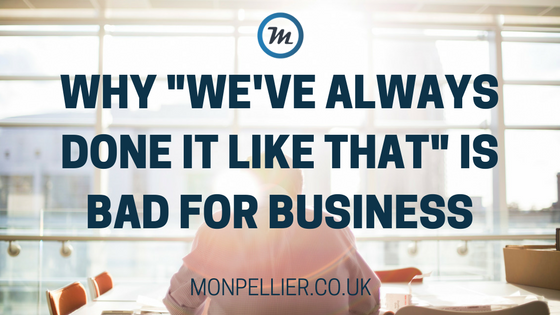Struggles with an accounting system may be a sign that it is time for something new. Growing SMEs may quickly outpace an older accounting software system but only few companies are willing to make the move. All of the other companies are staying things like:
“We’ve always done it like that”
“This is what we’ve been told to do”
Using those canned answers tells us a lot about someone. The number of meetings we have had with different clients who say the above two answers to questions is astronomical!
If you are one of those people that find themselves saying any of the above, it is time to sit back and read through this blog post so you can reassess.
Here are several indications that will justify moving to an accounting system with more features and scalability:
User permissions
Some companies have a need to limit certain functions to certain users. Most systems come with basic functional limitations, such as restricting Accounts Payable and Accounts Receivable functions. It may be helpful to have more granular user permissions such as access to only purchase orders or a certain bank account.
The key is to balance efficiency with security; that is, users need to be able to access areas of the accounting system they need in order to get their job done without having to constantly locate a supervisor. At the same time, there needs to be a balance so they don’t access areas unrelated to their job description.
Multiple companies and consolidated financial systems
Multiple companies that are the “children” of a parent company may need consolidated financial statements. A more robust accounting system makes it possible to open and view information for multiple companies at the same time.
Or, it set up correctly from the beginning, it is entirely possible to track multiple companies within one set of books which makes consolidated financials a snap. Be careful though, tracking multiple subsidiaries can quickly turn into a mess if not done properly and efficiently.
Number of customers and vendors
Keep an eye on the number of customers and vendors. Each system has their own limits and these limits can get complex quickly. Businesses need to be prepared to switch to a new accounting system before data limits impact everyday business operations.
File size and performance
There may be file size limits, especially if the company manages a high volume of transactions or multiple years of history in one file. It may be possible to condense files or set different preferences to speed up accounting system performance. Performance may be an issue if an older accounting system is installed on a newer PC.
Inventory features
Inventory issues are time-killers and create headaches. If a business needs a different method of calculating inventory or more advanced features than those provided in the “off-the-shelf” software, it may be time to upgrade.
Enhanced customisation
Most mid-market accounting systems provide better customisation such as additional custom fields, better reporting and improved form design. The based models offer standard reports with limited customisation options. However, if the accounting system is designed correctly, using these reports can usually handle most business owners’ needs.
Manual processes
How many ‘touches’ does it take to pay a bill or create an invoice? If there are multiple approvers and/or data entry takes an inordinate amount of time, then it may be a good time to make a change.
Another clue is using manual spreadsheets to manage processes and information when a reporting feature could make the task simpler and more accurate. It’s easy for companies to get in the “we’ve always done it this way” mentality. Look at processes to see if manual processes can be automated.
Number of simultaneous users
The final reason to switch to a larger accounting system is to accommodate more simultaneous users. Most software packages start out at base level for the core package and offer add-ons as well as an additional charge for each user. There is also a substantial investment in conversion and training as well so it’s important to accurately predict the number of users before deciding to make a change.
Monpellier has extensive experience helping clients select the best accounting systems for their situations. If you need help determining what kind of system is best for your business, give us a call on 0191 500 8150 or email info@monpellier.co.uk.
Comments are closed.



